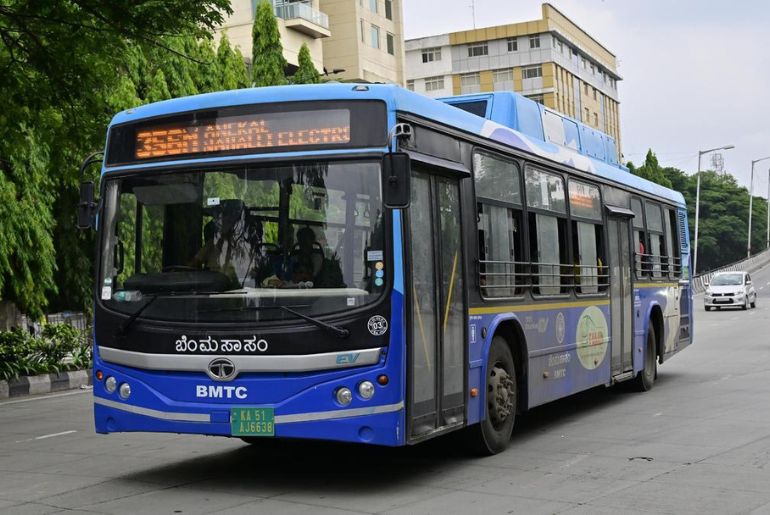Karnataka’s Transport Minister Ramalinga Reddy has raised serious concerns regarding the safety and operational efficiency of electric buses running in Bengaluru under the Gross Cost Contract (GCC) model. In a letter to Union Heavy Industries Minister H. D. Kumaraswamy, Reddy called for an immediate review of private operators managing e-bus fleets, citing performance gaps and safety risks.
Performance and Safety Issues Under Scrutiny
The minister’s concerns stem from reports of frequent breakdowns, inadequate maintenance, and poor driver training among private operators managing electric buses under the FAME II and Convergence Energy Services Limited (CESL) programs. These centrally supported initiatives aim to promote electric mobility across India by enabling private participation in public transport electrification.
However, recent data from the Karnataka Transport Department revealed that electric buses recorded a higher accident rate compared to conventional diesel buses. While diesel buses had an accident rate of 0.05 per lakh kilometres, electric buses were reported at 0.07 per lakh kilometres—a notable difference that has raised questions about safety standards and operational oversight.
Minister Seeks Policy and Operational Overhaul
Reddy’s letter emphasises the need for a comprehensive performance audit of existing operators and a review of their compliance with contractual obligations. He urged the Ministry of Heavy Industries to strengthen monitoring mechanisms and introduce stricter safety clauses in upcoming tenders.
The minister also highlighted issues related to staff shortages in private operations. As per contract guidelines, each bus is required to have at least 2.3 personnel, but current reports indicate an average of only 1.9–2.0 personnel per bus, affecting maintenance, turnaround time, and passenger service quality.
Reddy further suggested the creation of a joint compliance committee involving both state and central agencies to ensure continuous oversight of e-bus performance, safety checks, and service reliability.
Stakeholders React to Safety and Reliability Concerns
Industry insiders and transport experts have acknowledged the growing concern over the reliability of electric buses, especially in high-demand cities like Bengaluru. While the shift to electric mobility is a crucial step toward achieving India’s net-zero targets, experts argue that implementation and operational readiness are equally critical.
“Deploying electric buses is not the only challenge. Ensuring proper driver training, maintenance protocols, and service reliability is what determines long-term success,” said an energy policy expert familiar with the FAME II scheme.
Several reports have noted frequent service disruptions, with commuters facing delays due to technical faults and limited charging infrastructure. Bengaluru’s climate and traffic density have further tested the durability and efficiency of electric bus systems.
Implications for India’s Electric Mobility Push
The safety concerns flagged by Karnataka’s transport minister come at a crucial time when India is scaling up its electric bus fleet under central and state-level mobility missions. The GCC model—where private firms operate and maintain buses while the government pays per kilometre—has enabled faster adoption, but accountability and monitoring remain challenges.
If left unaddressed, these issues could slow India’s progress toward its 2030 electric mobility goals, especially in public transport electrification. Industry analysts believe this incident could prompt other states to conduct similar reviews of their e-bus operators and service standards.
Next Steps and Government Action
In response to Reddy’s communication, the Ministry of Heavy Industries is expected to initiate a policy review and consult key stakeholders, including CESL, state transport undertakings (STUs), and private fleet operators.
Officials suggest that upcoming tender processes under FAME III may include stricter performance metrics, enhanced driver certification standards, and penalties for service lapses. Karnataka’s proactive stance could serve as a model for other states to strengthen regulatory frameworks around EV public transport.
Conclusion: Ensuring Safety in India’s E-Mobility Transition
Karnataka’s intervention demonstrates the importance of balanced electrification policies that combine innovation with safety and accountability. As electric mobility expands nationwide, experts stress the importance of robust regulation, transparent operations, and continuous training to ensure that India’s clean transport future remains both sustainable and secure.

